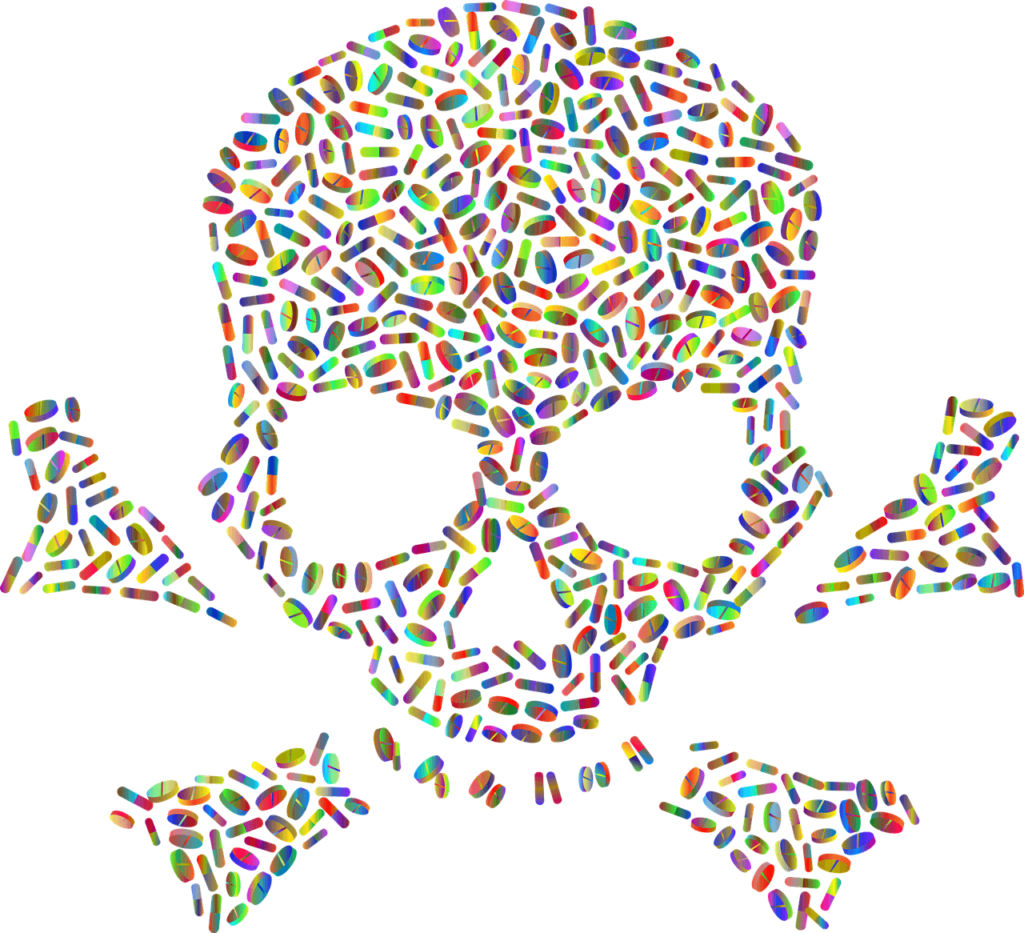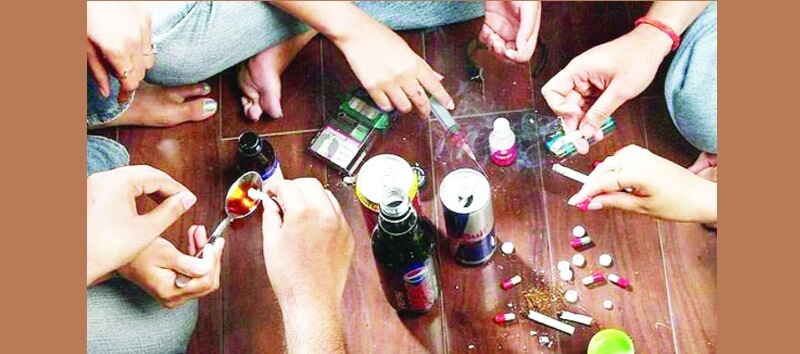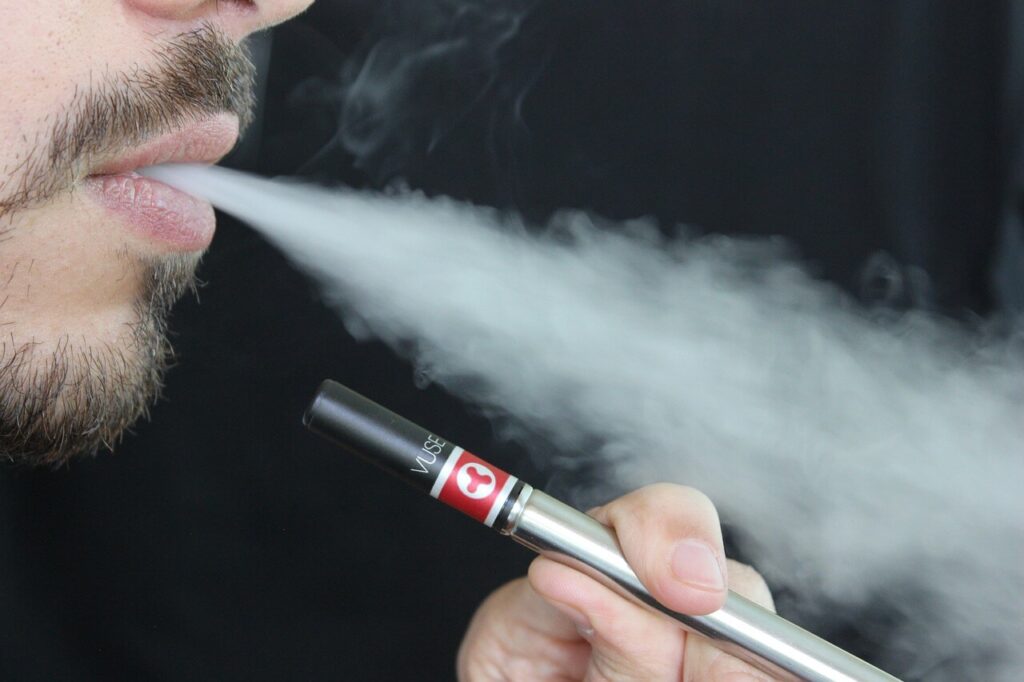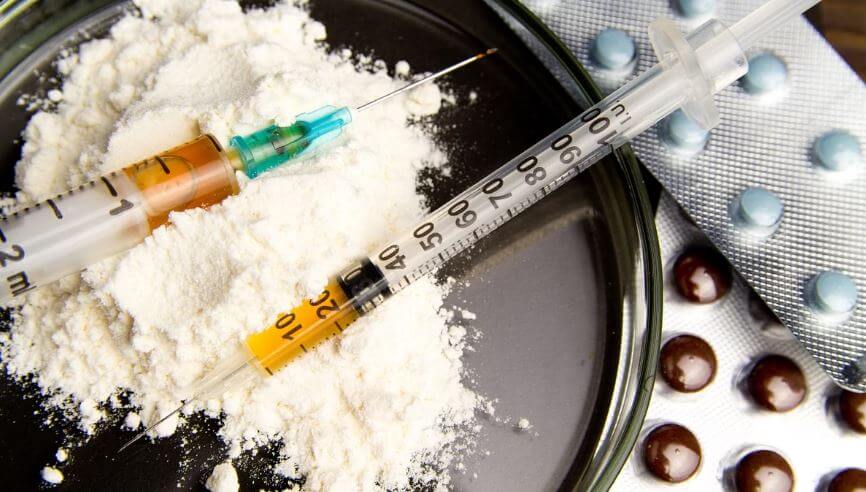
Of late, there has been a series of articles and editorials in the Indian media arousing public sympathy for the drug addicts of Kashmir. Most of the titles would speak for themselves, such as: ‘A daughter’s fight, a son lost to drugs: families in J&K battle death and despair’; and ‘One addict walks into Srinagar OPD every 12 minutes: Valley’s drug pandemic’, etc. Kashmir may well have a drug problem. The question is so what? Both from a moral as well as legal perspective, there is no way, no reason, the nation can accord special treatment to Kashmiri drug addicts different from say those in Delhi, Punjab or anywhere else in the country.
Why drug addicts themselves must be held responsible

The editorial comment that drug addiction is a manifestation of distortions in sociocultural, economic and political systems is preposterous. Can society pardon a crime committed by a drug addict on the grounds that his addiction was the result of sociocultural, economic or political systems? Drug addicts are not victims of circumstances, however peculiar they are. Period.
From a scientific perspective, addiction to anything takes place because it provides sensory rewards, such as increased release of dopamine. The simplistic notion that drug addiction is a disease was popularized a quarter of a century ago by Alan Leshner, then director of the US National Institute on Drug Abuse. Since then, it has been subjected to acerbic criticism by scientists. Markus Heilig et al have cited five separate studies by Heyman, Heather, Pickard, Hall and Hart to show that this conceptualization is neither supported by data nor helpful for the addicts.
Taking drugs in the first place is a conscious decision and the person consuming them is directly responsible for all the consequences. Even if we do not invoke any ‘moral failing’ or ‘weakness of character’, the crucial fact is that you do not become an addict in a day. All along while you are in the process of becoming an addict, you have consumed drugs in full command of your senses and hence you are responsible for the consequences.
Once you become a hopeless addict, your situation may then be described as a neuropsychological disorder or addictive disorder. However, the critical issue is that this ‘disorder’ is not something like COVID-19 that struck you out of nowhere for no fault of yours. The Nation State was liable for treating citizens in the case of COVID-19 because it was none of their fault that they fell sick. On the other hand, you become a drug addict through your own deliberate acts. How is the Nation State obliged to provide for your treatment then?
You cannot jump off a cliff in full command of your senses for sheer fun, become comatose after falling and expect that the Nation State must pay for the extremely costly procedure of keeping you alive indefinitely as a ‘vegetable’ on a ventilator out of the very limited number of ventilators, and to the detriment of all those other citizens who might need them for more deserving reasons.
Attributing drug addiction to irrelevant factors is suspicious

The editorial comment says that the myriad disruptions and the absence of recreational avenues in conflict zones leave psychological scars on people, especially the youth. The key phrase is ‘conflict zones’. The very use of this phrase suggests that though not stated explicitly in so many words, they intend to suggest that the drug addiction problem in Kashmir is, in some way, attributable to the history of decades of insurgency and terrorism there. Even if we deny historical facts and do not blame the local population for its role in the insurgency and terrorism there, all that can be said is that it was unfortunate. However, life is like that; no one gets roses all the way. Do they mean to suggest that Kashmiri drug addicts must be treated with kid gloves merely because they are what the liberals called ‘Bechara Kashmiris’? The liberals have been screaming about the necessity of a ‘healing touch’ for dealing with terrorism there for long. It had been one of the major impediments in tackling the problem firmly. Come August 5, 2019, the abrogation of Article 370, and the problem all but disappeared because of the heavy hand.
If the argument were to have any merit, every conflict zone in the world must be teeming with drug addicts. The fact is they are not. Moreover, there are other areas in the country and the world that have not been conflict zones and yet they have drug addiction problems.
Suggesting that a key part of the preventive measures should involve joining the dots—between unemployment, financial difficulties and an ecosystem rife with political uncertainty on one hand and the addictive behaviour of young people on the other is outrageous, to say the least. For their information, large parts of the country and youth populations thousands of times greater than those in Kashmir are battling with unemployment and financial difficulties. Do all of them become drug addicts?
It is even more outrageous to suggest that the State must invest in enhancing the recreational opportunities for youngsters. There are millions upon millions of youngsters who do not have any opportunity for whatever Express understands by recreational opportunities. In millions of households, there is only one TV and access to it is controlled by the tastes and whims of the parents. Millions of families cannot afford cinema hall tickets. Do all of them become drug addicts? The Nation State is neither a parent nor a nanny for the delinquent children. Forget about entertaining!
Consumption of drugs is a punishable offence

According to Section 27 of the NDPS Act, 1985, consumption of narcotic substances (loosely called drugs) is a criminal offence with rigorous imprisonment of up to one year, or with a fine which may extend to Rs. 20,000; or both. Section 64A, added in 2001, provides for immunity from prosecution to addicts volunteering for treatment. However, it can be withdrawn if the addict does not undergo the complete treatment for de-addiction. Moreover, this applies only when the addict is found with small quantities of the drugs as against commercial quantities.
Most importantly, there is no reason to believe that the addict is not an associate of more serious offenders who are involved in smuggling, manufacturing, possession, selling, purchasing, transportation, or usage of any manufactured drug or its preparation, financing illicit traffic and harbouring offenders, etc. After all, what prevents an addict from selling drugs on the side to generate money for his own needs? Why and how does he deserve any sympathy? In any case, there is no presumption of innocence as it would falsify S. 27. The Department of Revenue itself declares that if the addict is found carrying drugs, say, for a party and the total quantity of drugs exceeds a small quantity, then he cannot get immunity under section 64A.
There may be some truth in the claim that networks of terror intersect with drug supply lines, and that drone drops to illegal pharmacies and courier chains rope in addicts. If so, it becomes a national security concern and the Nation State must deal with it all the more ruthlessly.
What society should do for drug addicts?

At most, society can ‘teach’ kids, as a part of their education, to not become drug addicts. For example, in the USA, scientists are studying ways to stop addiction long before it starts, that is, in childhood. Dr Daniel Shaw of the University of Pittsburgh is working out whether teaching ‘healthy caregiving strategies’ to parents can help promote self-regulation skills in children and prevent drug addiction later on. Shaw’s study enrols families at risk of drug problems in a programme called Family Check-Up. In this, a parenting consultant visits their homes to observe the parents’ relationship with their child and gives them several questionnaires to detect any behavioural problems they are experiencing with their children, and enabling the parents to learn whether a kid’s behavioural problems might lead to drug addiction, etc.
This may be a fanciful idea with doubtful efficacy but underlines the fact that the Nation State must not get involved with anything more than education. Teaching ethics, moral education and sex education in our schools for long has not had the slightest effect on unethical/uncivil behaviour, immorality, or sexual offences in the country. In the end, we still have to fall back on the Prevention of Corruption Act for unethical/corrupt behaviour, and various other laws to deal with sexual offences.
De-addiction cannot be equated with treatment of other diseases in public hospitals because drug addiction is not a disease—as simple as that. Hence, there is no reason that the State, that is, the taxpayers, must pay for a crime. The entire cost of de-addiction must be realised from the families of the addicts and in case they refuse to pay, they must be jailed. There is no reason to believe that one could become an addict without his family getting to know of it. The cost of failure of parenting cannot be passed on to the society.
The State is there to govern, not for ‘parenting’

There is a popular Hindi TV serial on Star Plus called Anupamaa (first on the TRP list with 2.9 ratings). The protagonist of the serial is a twice-married, middle-aged, half-educated woman Anupamaa. She thinks that having been the biological mother of three grown-ups, married kids from her first marriage and foster mother of an adopted minor girl in her second marriage, she is the ultimate protector and enforcer of morally correct behaviour in society. She flaunts and exalts her ‘motherhood’ so much that one would be inclined to suspect that, for that reason alone, God Almighty has granted her a Divine Right to poke her nose in anybody and everybody’s private affairs at will and usually against their will. She believes that God has imbued her with the gift of giving well-meaning moral advice to everybody in this universe, and feels free to slap anybody so as to ‘reform’ them and impose her version of morally correct behaviour.
I made a reference to the character of Anupamaa here because the Nation State must not start behaving like the overbearing parent that Anupamaa is. The basic duty of the Nation State is enforcing the law of the land and protecting the people. It does not mean that the Nation State should start ‘catering’ to the people or poke its nose everywhere. That we are partially a welfare state in the sense that we have food security, public health insurance schemes, social aid to families and new mothers, free school meals, pension schemes unemployment benefit schemes, etc. does not mean that we start spending the hard-earned money of the taxpayers in trying to ‘reform’ those delinquents/criminals also who have willingly, through their own volition, become so.
Sympathizing with the delinquents/criminals or ‘pampering’ them as spoilt kids amounts to placing a premium on delinquency/criminality. We cannot turn delinquents/criminals into ‘especially favoured youth’ who deserve the collective compassion of society. If they deserve anybody’s compassion, it must be their families, and not the society or the nation. Society cannot be made to suffer or pay for the families’ failure in parenting.
And finally, if the bleeding heart liberals are convinced that drug addiction is an illness of whatever description, why don’t they move the Parliament to remove drug consumption as a punishable offence? You cannot make an illness punishable, isn’t it? There is thus a clear dichotomy. By the way, who is not aware that most of the drug addicts also commit a variety of crimes? Who will be held responsible for horrible crimes like rape, robbery or murder that drug addicts commit before or after drug consumption?

